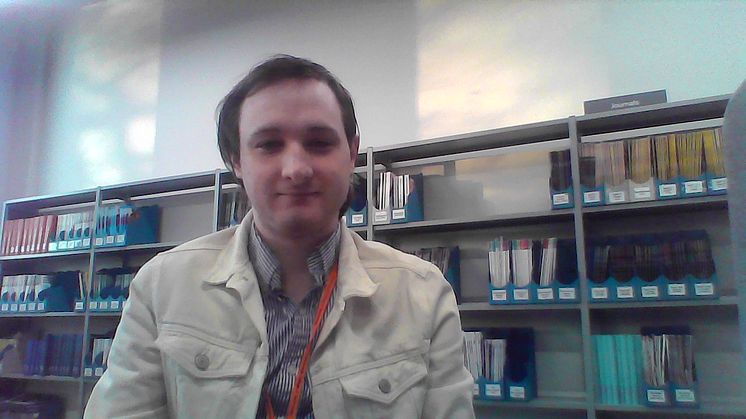
Press release -
Hampshire stroke survivor adds his voice to Lost for Words campaign
Farnborough stroke survivor James Humm, 29, is one of the thousands of people living with communication difficulties after a stroke.
James had a severe stroke in 2015 at the age of 27. As a result, he developed the communication disability aphasia and for five months after his stroke, he could only say the words ‘yes’ and ‘no’.
James spent a month in hospital having intense speech and language therapy, and with the support of the Stoke Association, his speech has gradually returned. James has since gone back to college and hopes to go to University next year to study Speech and Language Therapy.
James said: “It was the most terrifying time of my life – I thought I’d never speak again. Suddenly everything had been taken from me, and I felt so alone.
“In the months after my stroke I didn’t know how I’d get by. I had to start from scratch and re-learn how to talk, read and write. I was determined not to give up. I wanted to get back to the life I had before my stroke. But I felt so isolated, and thought that people were worried about talking to me.
“I’m so passionate about educating others about aphasia now, and have dreams of taking a career in speech and language therapy. My stroke is something that changed my life in an instant, but without the incredible support from the hospital and the Stroke Association, I wouldn’t be here today. I want to give something back as a thank you to everyone who helped me.”

The Stroke Association’s Lost for Words campaign aims to raise awareness of the challenges stroke survivors with communication difficulties can face, and help and support available.
Samantha Malkin, Communication Support Coordinator at the Stroke Association, said: “After a stroke, around one in three people like James have difficulty communicating, which can be both terrifying and isolating. But with the right help and support, many stroke survivors are able to find new ways to communicate, and can rebuild their lives.
“James has thrown everything into his recovery, and even with all his studying, he still finds time to volunteer for the Stroke Association to help others. James really has gone from strength to strength. I’m so proud of his recovery.”
More than 350,000 people in the UK have aphasia, a communication disability which can be caused by stroke. The Stroke Association is urging people to show their support for stroke survivors who are lost for words and make a donation. For more information, visit www.stroke.org.uk/lostforwords.
Topics











